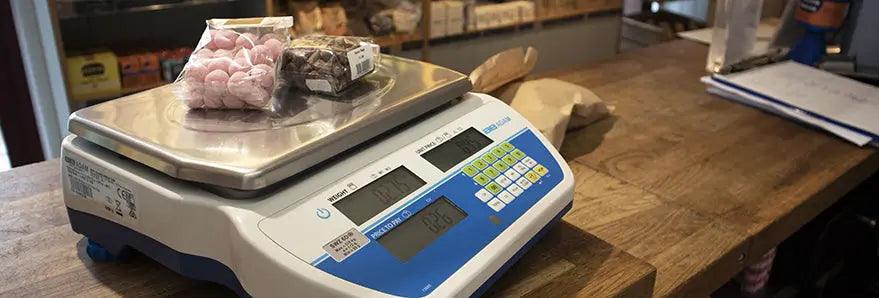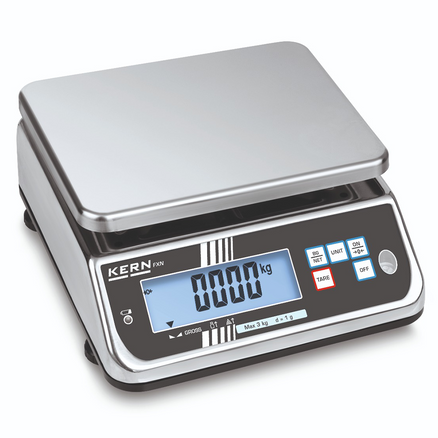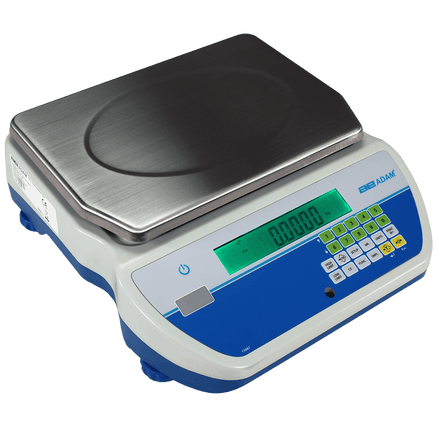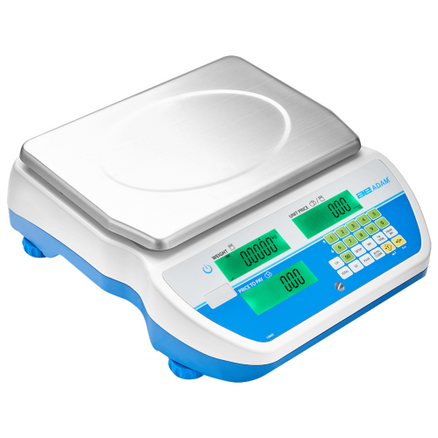
Should I Buy Trade Approved Scales for My Business?
If you're a business that needs to weigh products, there's a good chance you may need to use trade approved scales. But does your company need to buy trade approved scales to comply with the law - are they worth the extra cost - and what will happen if you don't buy trade approved scales? In this blog post, we explain.
What is a trade approved scale?
A trade approved scale is a weighing scale that has been certified by authorities to comply with regulations for buying and selling goods by weight. Protecting both the buyer and seller, trade approved scales are extremely accurate and provide reassurance that the items being sold are the correct quantity for the price of purchase. A few examples of industries that may require a trade approved scale are supermarkets, sweetshops, fishmongers, and butchers.
How do I know if my scale is trade approved?
A trade approved scale is easy to identify by the markings on its data plate. You can usually find the data plate on the back, side or underside of a scale and will include information about the manufacturer, the scale name/number and serial number. If it's trade approved the data plate will also include a large M next to a CE marking, and likely a 'III' in an oval, which denotes Class III.
If you're visited by a trading standards officer and they inspect your scale, this is likely the first thing they will look at.
Another, albeit potentially less reliable, way to tell if your scale is approved is by checking the documents from when you purchased the scale, or the packaging itself. Most manufacturers and sellers will include 'approved' or 'class III' in the paperwork - although don't rely on this alone. if you're unsure, we'd recommend checking with the company you bought your scale from.

When would I need to use a trade approved scale?
UK law states that if you own a store such as a butchers or farmers market you are legally obliged to ensure that your scales are ‘legal for trade’. This means that you must have a trade approved scale when selling items with a price based on its weight. No industry that sells items by weight are exempt from this law, ensuring products are being sold fairly and not overcharging customers.
Examples would be when selling fruit, vegetables or meat by weight such as kilograms. Other occasions where trade approved scales are required is for the sale of…
• Packed products that specify weight
• Fragrance and soaps
• Fuels
• Alcohol and liquids
• Animal feeds
• Jewellery and metals

A further summary of trade approval, the Non-automatic Weighing Instruments (NAWI) Directive 2014/31/EU states that trade approved scales and balances must be used in the following circumstances:
• Determination of mass for commercial transactions
• Determination of mass for the calculation of a toll, tariff, tax, bonus, penalty, remuneration, indemnity or similar type of payment
• Determination of mass for the application of laws or regulations; expert opinion given in court proceedings
• Determination of price on the basis of mass for the purposes of direct sales to the public and the making-up of pre-packages.
• Determination of mass in the practice of medicine for weighing patients for the purposes of monitoring, diagnosis and medical treatment.
• Determination of mass for making up medicines on prescription in a pharmacy and determination of mass in analyses carried out in medical and pharmaceutical laboratories.

What if I don’t use a trade approved scale?
In further detail the UK law states that trade approved scales must be used for selling substances based on weight in accordance with the ‘Weights and Measures Act 1985’. Trading standard officers have the right to visit businesses at any given time to check that the weighing equipment being used meets guidelines and is legally fit for trade.
If you are found to be using your trade approved scale incorrectly or not owning one entirely when trading you are at risk of receiving a 28-day notice, fines of over £1000, or even a prison sentence. Tampering with trade approved scales after they have received their approval is also against the law, putting you at risk of further penalties.
So, should I buy trade approved scales?
In summary, if you are unsure whether your business needs to use trade approved scales or not, consider this. If you are weighing an item in order to provide the with a price, by law you should use a trade approved scale.
Buy trade approved scales from Inscale

Kern FXN Trade Approved Waterproof Bench Scale
The FXN is Kern's IP68 waterproof stainless steel bench scale, most popular within food production. This trade approved model can be used when buying or selling based on weight and boasts a highly durable design, checkweighing functions and full protection in wet, humid and dusty environments - ideal for HACCP - compliant workplaces.

Adam CKT 'Cruiser' Trade Approved Bench Scale
A high-performance, high accuracy checkweighing scale from British scale manufacturer Adam Equipment, the CKT can accomplish checkweighing and parts counting operations with ease. The CKT is Trade Approved, which is required for selling items that are priced by weight.

Adam SWZ 'Swift' Price Computing Retail Scale
Adam Equipment’s ‘Swift’ price computing scale is a portable, trade approved weighing scale for shops and markets. It boasts multiple language and currency outputs, 100 PLUs for faster price per kilo and price per gram recall – and with a rechargeable battery, it’s perfect for smaller shops and market stalls.

IXS Kern Approved Stainless Steel Platform Scale
Platform Scale with stainless steel display device with IP68 rating, XL Display now also has high resolution and EC Type Approval [M]. Tough industry standard suitable for use in harsh industrial applications.
If you need more information about approved scales, read our full guide to trade approved scales, or contact the Inscale team.

Leave a comment